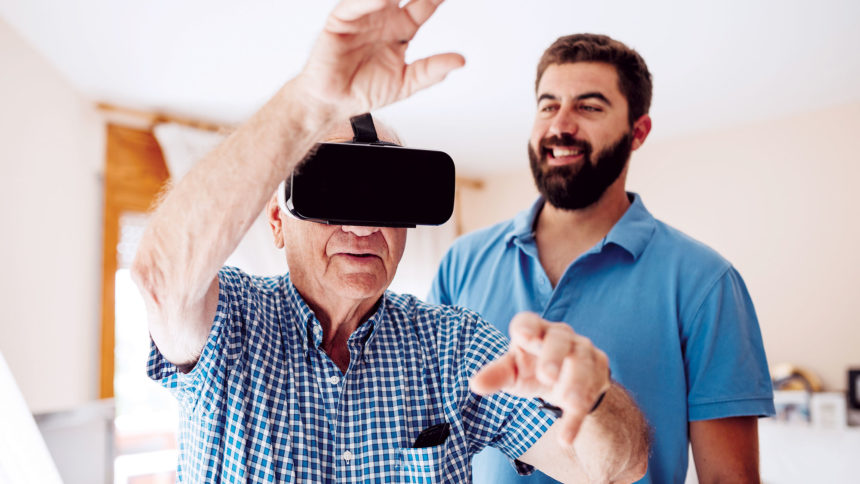
Past research has shown that older adults with mild cognitive impairment (MCI) and low performance in attention and executive function are more likely to experience gait slowing, instability and future falls.
But a new study with older adults in Taiwan suggests that virtual reality may be able to help seniors with MCI improve their cognitive gait performance and cadence, therefore decreasing their likelihood for falls.
The researchers randomly assigned 34 community-dwelling older adults with MCI into either a virtual-reality-based physical and cognitive training group or a combined traditional physical and cognitive training group for 36 sessions over 12 weeks.
In the virtual-reality program, the team used Microsoft’s Kinect system to capture participants’ limb motions and create a full-body 3D virtual map.
For the physical training, participants imitated their virtual character to perform exercise and functional tasks such as window cleaning, goldfish scooping and other tasks to improve upper and lower extremity balance, stability and strength.
The cognitive training required them to wear the virtual reality glasses on their heads with a motor controller in both hands to execute training tasks such as taking rapid mass transit, walking to the store and preparing a meal.
The researchers found that both the traditional physical and cognitive training groups as well as the virtual reality training group showed significant improvements in selective attention, cognitive flexibility, processing speed and walking performance while carrying something.
However, only the virtual reality participants showed improvements in cadence, or walking rate, and their cognitive dual-task gait performance — their ability to walk while also performing a mental task such as subtraction or talking to someone on the phone. n
From the September 2019 Issue of McKnight's Long-Term Care News



